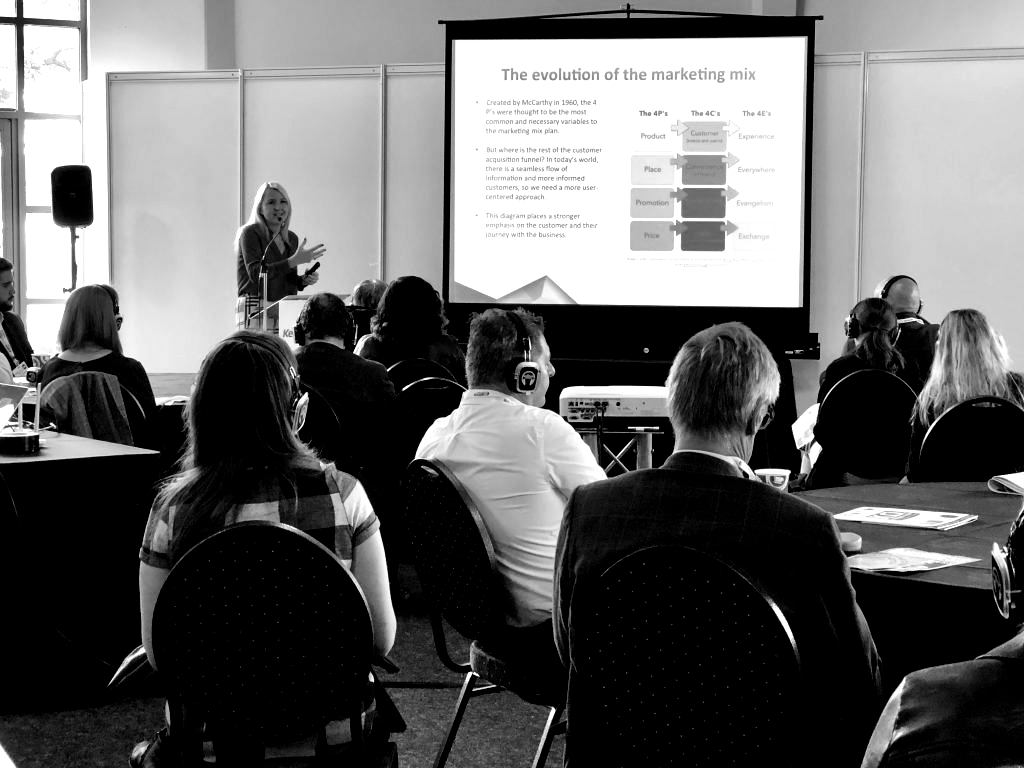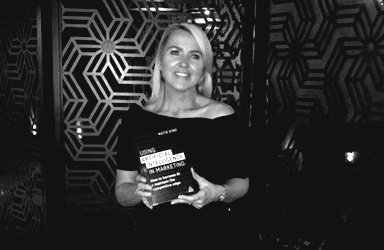My Thoughts on Microsoft’s Modern Workplace “GDPR Impact” Webcast
This post is sponsored by Microsoft– but all thoughts and opinions are, of course, my own.
The latest episode in Microsoft’s Modern Workplace webcast series focuses on the impact of GDPR. Alex Bradley hosts two leading experts in the privacy and data industry, to provide their advice on how organisations can accelerate their GDPR journey.
First off, it is important to note that this is not a webcast, which simply states what GDPR is and how companies can characteristically prepare. Rather, Alex Bradley, David Kemp and Elena Elkina use it to showcase the positive opportunities it can create for businesses that are willing to embrace GDPR.
Creating a global standard of data and privacy regulation is undoubtedly one of the key drivers for the emergence of GDPR, and there is no time like the present to rebuild and improve trust between businesses, consumers and regulators.
But who actually will the GDPR advantage; are consumers the only beneficiaries? Interestingly, Elena Elkina raised the point that the transparency which we will see improve following the May 2018 deadline will not only rebuild trust, as consumers can be more confident that organisations are complying, but it will also help advance businesses.
What’s really interesting about this is that despite GDPR fundamentally aiming to protect individuals’ rights, what we may also witness is businesses turning it around to use at their own advantage, by providing a standard of optimum trust and creating a competitive advantage over other organisations.
For those businesses who are yet to prepare or who have just set foot on their GDPR journey, this webcast is a great place to begin. David Kemp’s knowledge in the Law and Banking industry, and Elena Elkina’s long-standing expertise in the privacy arena, steers unbeatable advice for how you can create a well-rounded plan to comply with GDPR. And of course, for those that may have existing processes in place, David Kemp advises a practical approach to build on what you already have. Using gap analysis to reveal where your limitations lie, but more importantly where you can complement what you already have in place to keep costs down and effectively reach your goal of compliance.
Unlike other assisting literature and videos attributed to the GDPR deadline, the Modern Workplace webcast does not use a scaremongering technique to spark organisations preparation. Although David Kemp does touch upon the negative consequences of non-compliance, it primarily paints GDPR in a positive light by highlighting the benefits of incorporating GDPR into your organisation.
In the marketing sector, accelerated by our deeply digitalised society, innovation has become crucial. When I first heard about GDPR, the last thing I would have discussed with my clients is that it could level up their businesses and provide an opportunity for innovation. The most valuable lesson to learn from the discussion is that GDPR provides immense opportunities for innovation. In particular, how it paves the way for businesses to offer a premium service relative to others in the market. Essentially, if you look past GDPR as strict regulations that belong solely to one department – and build it into your compliance process in every department – then it can change the culture of the company altogether and give consumers the confidence that compliance is second nature rather than protocol. It is no longer simply about technology and following guidelines, it is about people and ensuring everyone in the organisation buys into these new privacy standards that we are all expecting to see.
Fines and operational efficiency are just two of the drivers behind GDPR compliance. Although substantial driving forces, they are not unaccompanied. One motive for GDPR compliance, which has not been discussed as widely, but is most likely to be of interest to many organisations, is the way businesses can make money from this regulation. The webcast places heavy emphasis on the role that GDPR can play as a revenue generator. The discussion culminates in two perspectives: Does GDPR offer an opportunity for a spending bonanza for CIOs and CSOs, is it the catalyst which is sparking a supreme data hygiene process which is long overdue? Or is it seen as an untapped revenue generator to which marketing officers can use their advantage? As discussed in the webcast, this is dependent on what is of interest to your organisation, but in the marketing sector – and through listening to the discussion, GDPR certainly offers a great opportunity to achieve competitiveness and improve your profile in the market.
To learn more about the impact of GDPR, watch the full episode. Please visit: http://bit.ly/2j6QdLQ
For more thoughts and opinions on technology and business innovation, take a look at Microsoft’s previous webcasts, as part of the Modern Workplace thought-leadership series. Please visit: http://bit.ly/2yrkLPe









